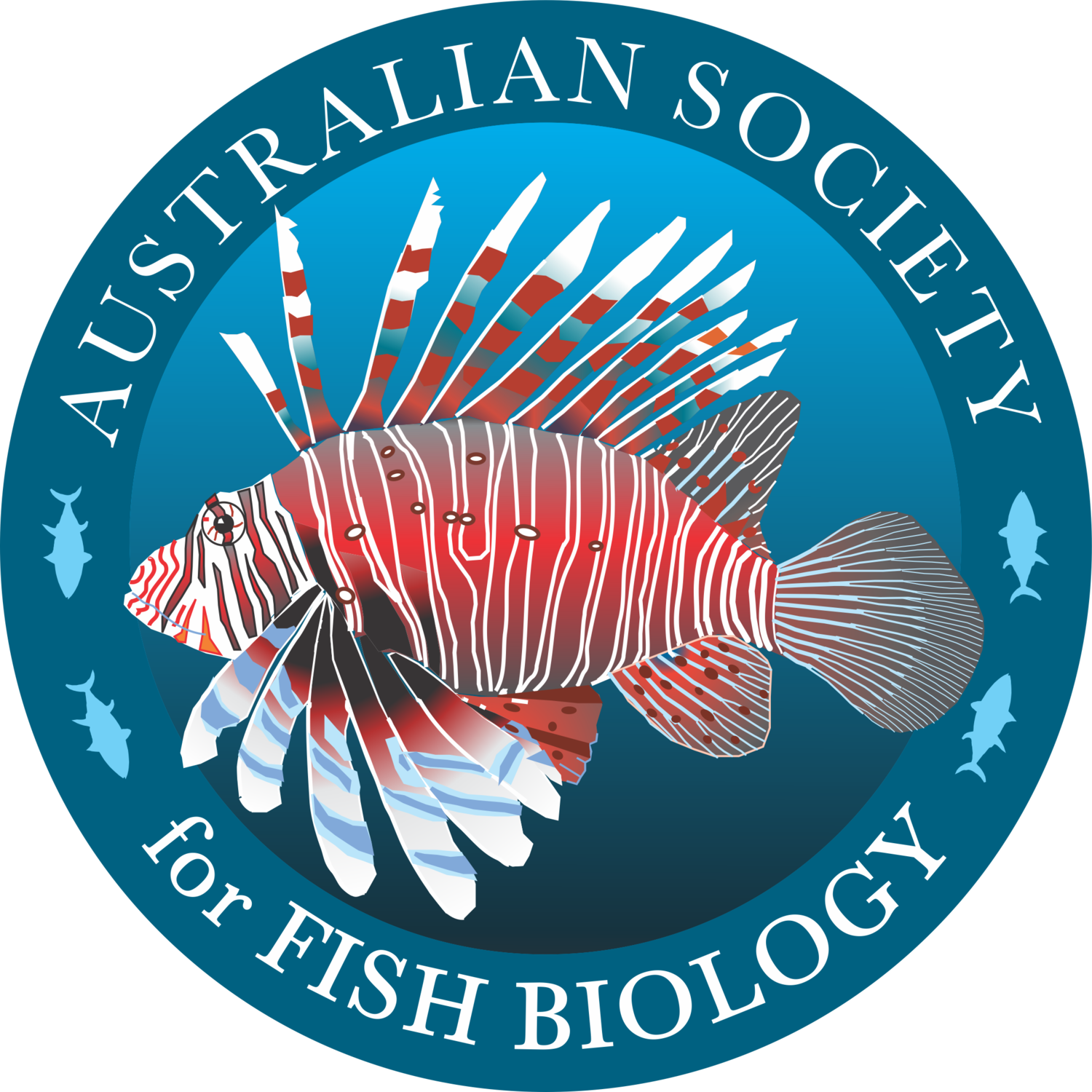ASFB 50th: “I felt like part of the ASFB family”
ASFB members share their favourite memories across the society’s 50-year history.
ASFB banner at the 2018 conference in Melbourne, Victoria.
This year, the Australian Society for Fish Biology celebrates 50 years of supporting fish and fisheries research in the Australasian region. We invite ASFB members, past and present, to help fill the gaps in our history by sharing their memories.
There are three ways you can contribute:
Tell us your favourite ASFB memory
Send us your favourite photo from an ASFB event, or a photo of yourself in action undertaking some fishy work (send your photos, with a descriptive caption, to asfb50th@gmail.com)
Answer 10 quick questions about yourself
Here are some of the submissions we have received so far.
Favourite ASFB memory
I’ve attended a few ASFB conferences now, always finding them enjoyable. However, my personality often has me standing in the back row of crowds, always polite and willing to chat, but often feeling like an ‘outsider’ in a room full of intellectuals. Something changed in 2019 at Canberra. I arrived late to the venue for the opening ceremony; my anxiety levels rose as I entered the room full of raucous banter. I signed in, and, as usual for me, skirted to the back of the crowd to observe proceedings. Straight away, I noticed a familiar face in Brendan Ebner making a beeline toward me with a cold beer in hand—“Here you go mate, saw you come in, have a beer and we’ll catch up later”—and, with that, he turned to re-join the crowd. In an instant, I felt like part of the ASFB family, and, with that small gesture, that feeling of being an outsider had gone. I don’t remember much of the opening speeches. I just stood there with a smile on my face and a cold beer in my hand, thanks to Ebb, and the thought that this was going to be a great conference. Can’t wait for my next one and to see the friendly faces again.
David T. Roberts
ASFB in pictures
“I was proud to host the first ASFB conference where gender equity was front and centre as a discussion topic (Hobart, Tasmania, 2016).” Submitted by Sean Tracey.
10 questions
Gerry Closs
Are you a robot fish? No
First ASFB conference: Lorne, 1990.
Chatting to Tilzey in the Lorne Pub is the dominant memory, but generally interesting and fun conversations in the Lorne Hotel each night, talking about fish. New experience for me. The into-the-night dancing was also memorable at the end of the conference. Can't remember any of the talks – it was a long time ago now.
Favourite fish: Giant Kokopu (Galaxias argenteus)
The largest galaxiid and a spectacular fish in itself, but also demonstrates the delights of understanding biogeography. I worked with Galaxias olidus and Galaxias brevipinnis for several years in Australia, maximum size, say, 20 cm. First fish I caught on moving to New Zealand was a Giant Kokopu. Obviously a galaxiid, but around 35 cm long and reasonably heavy, with beautiful gold flecked marks all along its body. A galaxiid, but, oh, what a galaxiid.Main fish biology interests: Freshwater fish ecology, life history and conservation
Memorable ASFB conference experience: First conference as lecturer at La Trobe in Sydney (1995). Obviously, as a new lecturer, I'm keen for us all to impress. Anyway, the team seems to get a bit carried away at the opening function and seem a little worse for wear. Even worse, we'd lost Harry Balcombe altogether – no idea where he'd gone. Anyway, no need to worry – I was obviously working with a bunch of consummate professionals. Despite being a little worse for wear, all students all gave excellent talks, including Harry, who reappeared with seconds to spare before his scheduled talk slot.
Memorable field experience: Catching the aforementioned first Giant Kokopu. It's always fun catching a new species, but this one was special. Closely followed by electrofishing in Poland – I guess we tend to associate Europe with low diversity, heavily impacted ecosystems, but Europe does have wonderfully diverse fish communities. Twelve species along a 50-metre reach of a tributary of the River San in south east Poland. Most of them indigenous, all interesting. And if we fished for longer, there were another 6–7 species to catch. Best I can get in a New Zealand stream would be 5 species.
Which fish would you most like to be? Whale shark. Big, reasonably easy to catch food, and more or less safe from predators.
Which fish would you least like to be? Any small fish. Life is a bit short and brutal for most of them.
Do you have any fishy aspirations? Working out the distributions of migratory and non-migratory life histories across New Zealand landscapes has been very satisfying over the past 20 years or so. Seeing those qualitative models of life history processes and distribution tested across other land masses will be very interesting. Would love to test some of the ideas in the Pacific Islands. Larger land masses such as New Caledonia and Fiji should be large enough to allow non-migratory species to persist, away from the high fecund species that migrate in from the ocean. Lots of ideas and places still to be explored.
Favourite reads: John Gierach's fishing books are a good lazy fish-related read: fish, people, fishing, and landscapes. And easy reading on a lazy afternoon.
Are there any other special ASFB memories you would like to share?
Had to pull any specific ones out – it's a long blur of enjoyable conferences, interactions, conversations and fun times. They all sort of get mixed up together.


